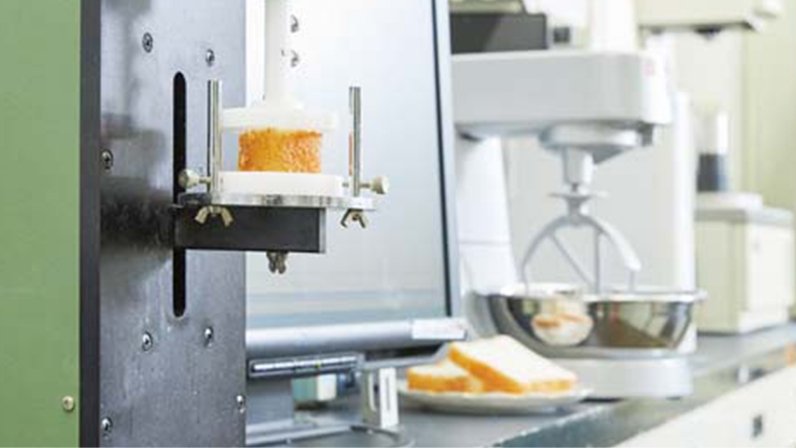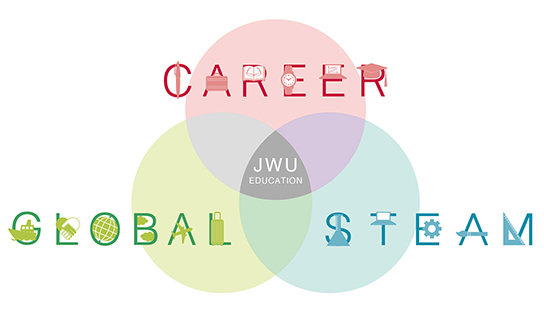To become a specialist in nutrition who supports the health of modern people as a medical professional in nutrition management and nutrition education
The Nutrition Major offers a curriculum that prepares students to be active as registered dietitians, with an emphasis on basic medical science and clinical nutrition. Through a variety of experiments and practical training, students learn nutrition management and nutrition education for health maintenance and promotion, disease prevention and treatment, and nurture the thinking and practical skills that will be required in the medical field, public health centers and public administration as a member of the medical profession in the future. Upon graduation, students will be licensed as dietitians and will be qualified to sit for the national registered dietitian examination.
Features of the Department
Building the foundation for specialized skills with four basic subjects
To prepare students to work as registered dietitians in the medical field and at health care facilities, the Department offers a variety of practical training and experiments, with an emphasis on basic medical science and clinical nutrition too. In addition, group work is emphasized to cultivate the management and communication skills needed in team medicine.
Cultivating an awareness of being a member of the medical profession
Students study clinical medicine, clinical nutrition, public nutrition, nutrition education and other specialized knowledge, and then undergo on-site training at hospitals and public health centers during their third and fourth years. Through the on-site experience students develop the ability as nutrition experts who can carry out responsible duties in the medical field and other settings.
Numerous opportunities for career opportunities; students can obtain a dietitian's license upon graduation
Graduates can work in a wide variety of fields, such as nutrition management in hospitals and schools, professional support for athletes, in the food industry, and in research. Also, if they obtain the Class I teaching license (nutrition), they can become a specialist in nutrition education. There are also opportunities to work on advanced research at graduate school.
The four years of study at the Department of Food and Nutrition (Nutrition Major)
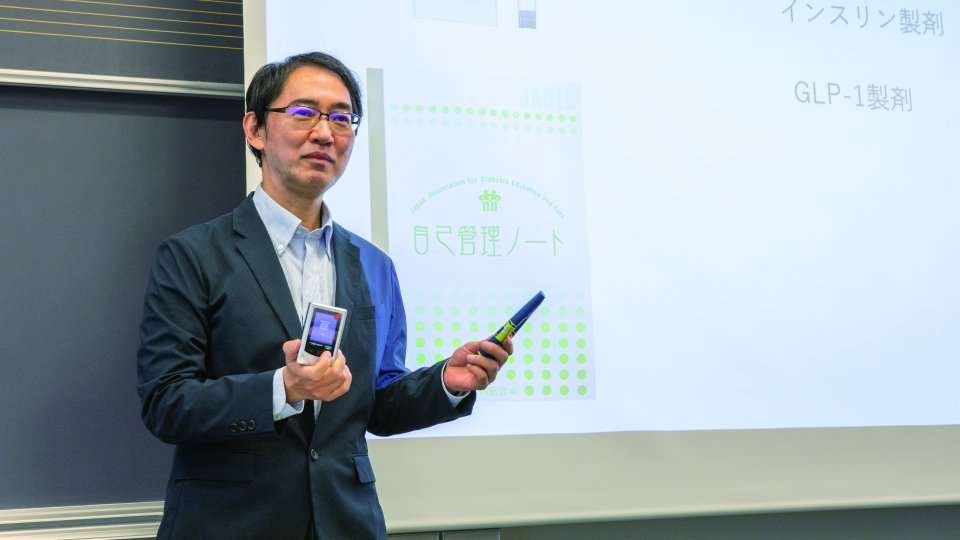
First year: Gaining basic knowledge as a nutrition specialist
Students will take basic lectures, experiments, and practical training in the four areas of nutritional science, food science, cookery science and medical science, as well as biochemistry and physiology.
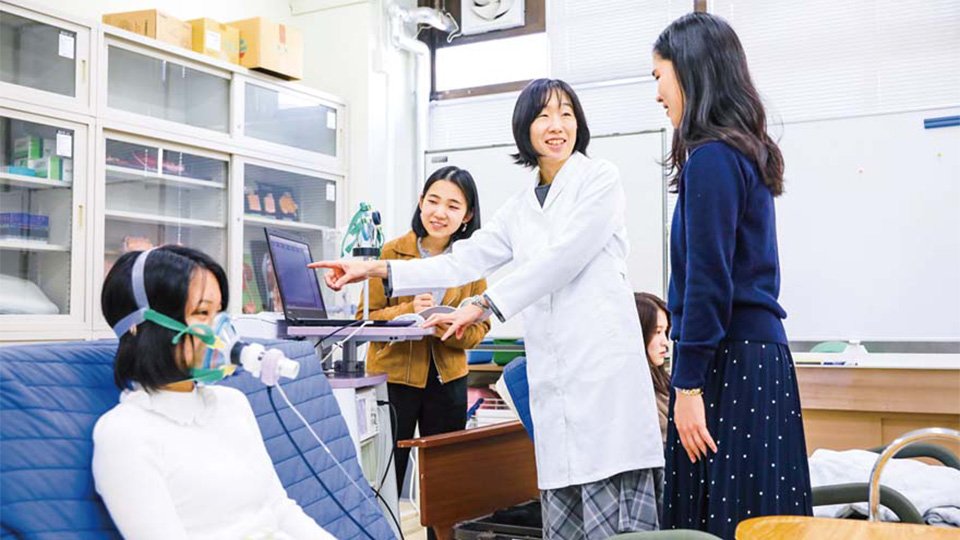
Second year: Developing the knowledge obtained in the first year and learning the basics of specialized fields
Students will learn the basics of specialized fields such as nutrition science, food science, cooking science, and medical science.

Third year: Further deepening knowledge and skills in specialized fields
Students will take lectures, experiments, and practical training in specialized fields to develop and acquire more practical knowledge and skills.
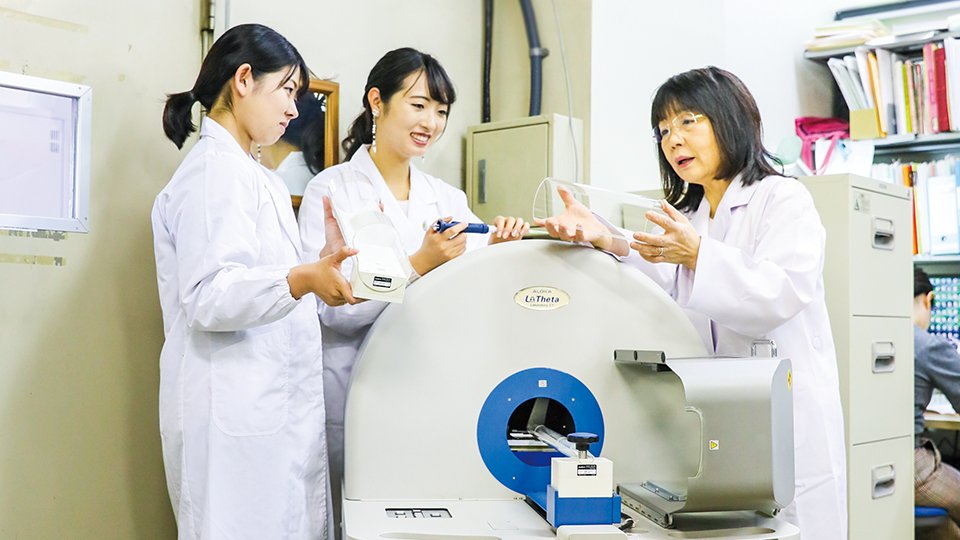
Fourth year: Undertaking graduation research and acquiring solid research capability
Students will repeat experiments and surveys to conduct their graduation research and acquire solid capability to apply knowledge and technology to research.
Class introduction
Experiments in Human Anatomy|First year
Registered dietitians are members of the “medical profession.” Understanding the human body is important.
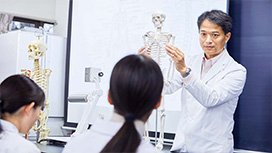
Professor
Anatomy and physiology, physiology
What is important for registered dietitians is to have a solid understanding of the structure and function of the human body and diseases. The "A Experiments in Human Anatomy ” is designed to help students relate the structure and function of the human body to diseases, develop a concrete image of them and gain a deep understanding of basic nutrition science and various nutritional theories. Through video classes on human anatomy and dissection of rats, students learn the fundamentals of nutrition with the awareness that they are members of the medical profession.
Based on the University’s ethos of “self-learning and self-reliance," we emphasize student-centered learning, in which video materials are distributed in advance and students summarize the content of the experiment and engage in the experiment. In this class, students work in small groups of three to four students so that they can learn from each other, and the faculty member will explain any questions or problems that cannot be resolved within the group. Students work with reverence for the sanctity of life and use what they learn from laboratory animals to understand the structure of the human body. We hope that students will grow into human resources who can play an active role in society as professionals involved in disease control and health maintenance.
Faculty member introduction
Faculty members with a wide range of specialties provide education.


